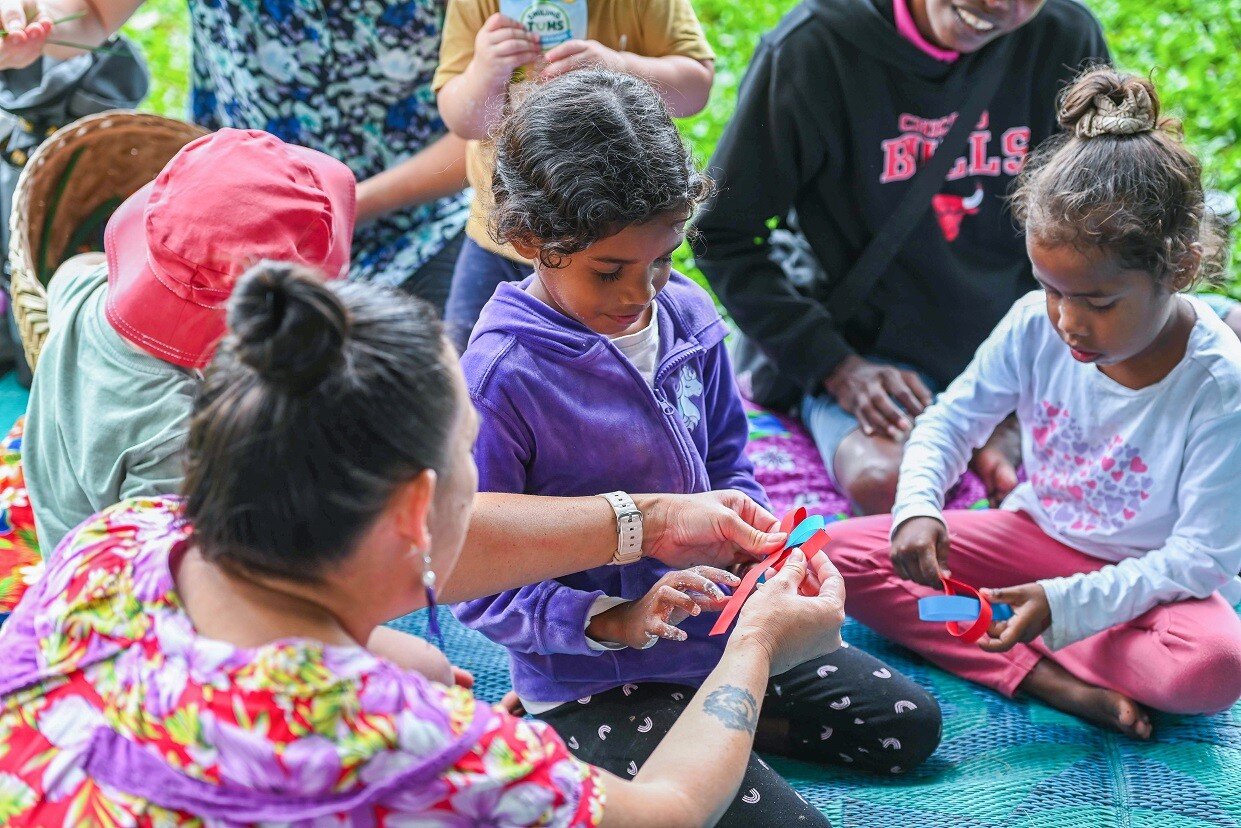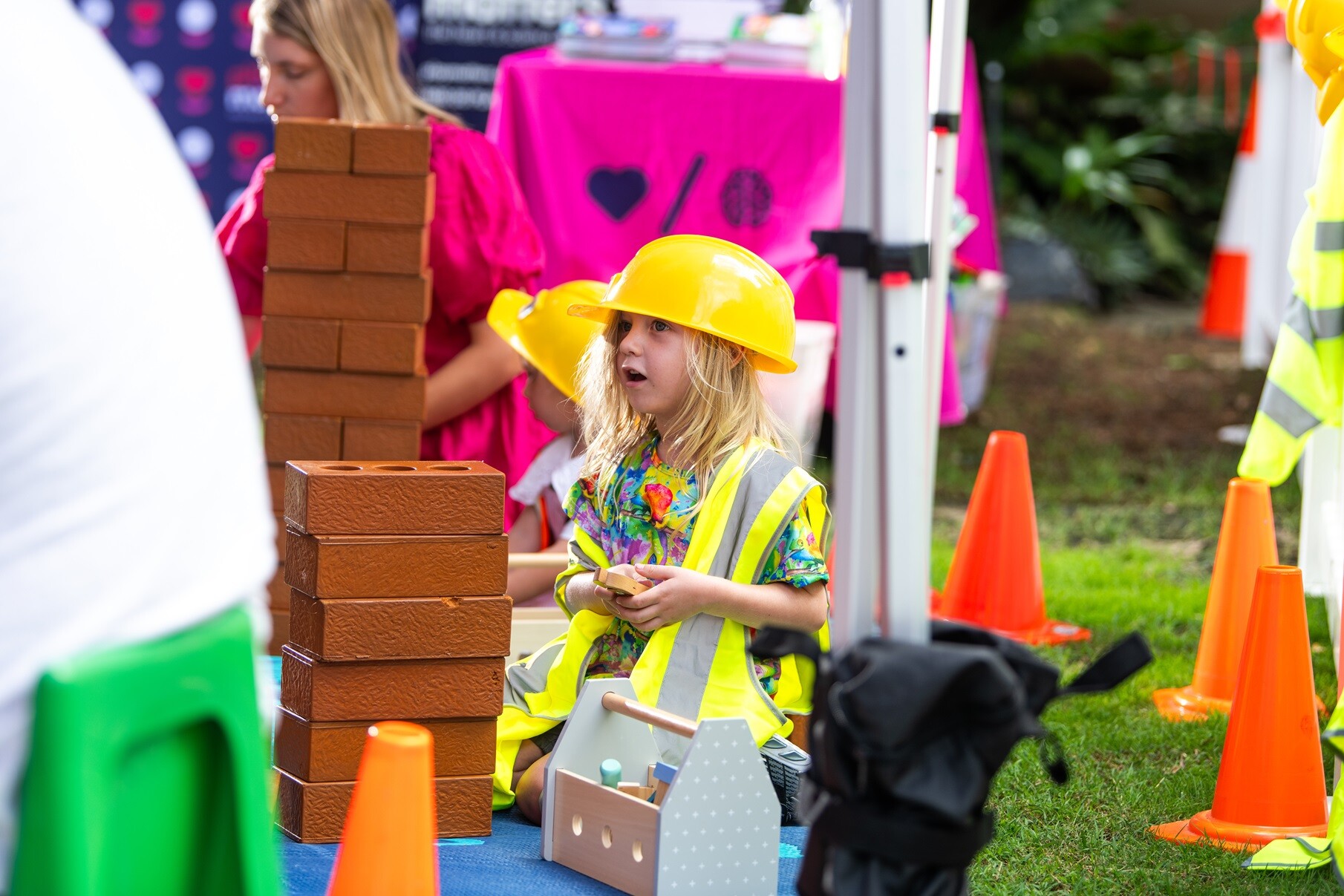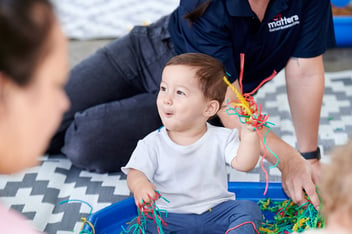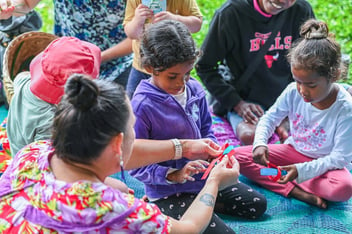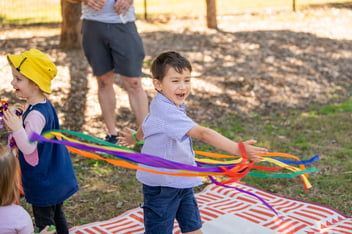
Children's Voices Matter
Blog > Children's Voices Matter

Children's Voices Matter
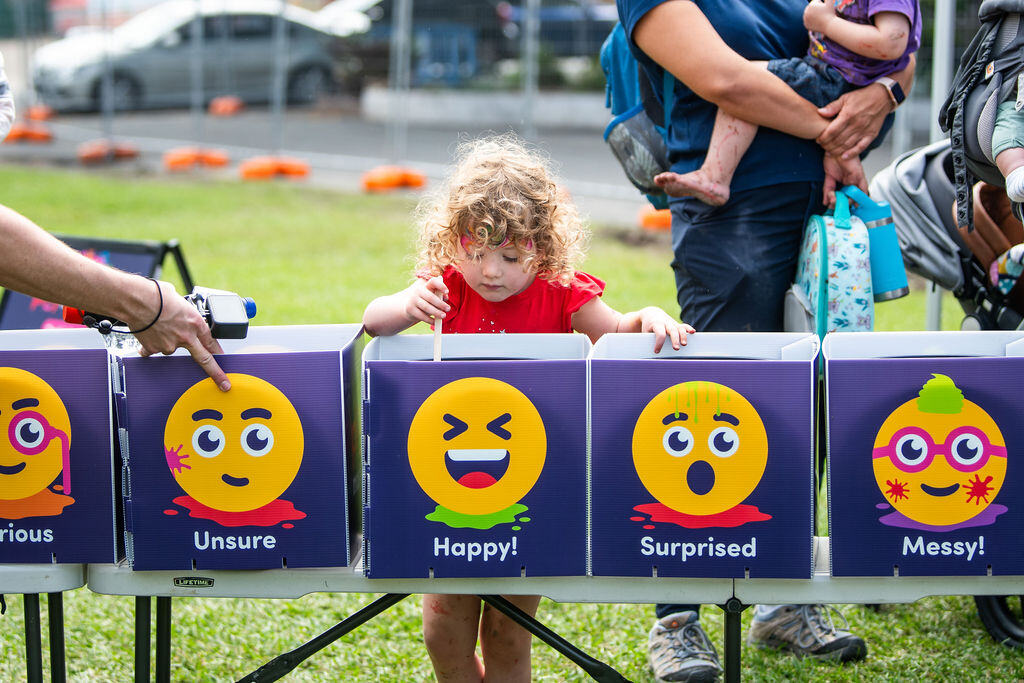
At Play Matters Australia we’re passionate about Children’s Rights and Children’s Voices which is why we’ve worked alongside staff, and experts, to dedicate time, effort, and support towards promoting children’s voices, and showcasing the ways in which they can be (and are) embedded in our practices.
As the heart and science of play, we celebrate children’s sense of wonder, playful spirit of adventure, and the creativity, imagination, and curiosity that drives children to investigate, experiment, and engage. We believe in advocating for children’s dignity, respecting their agency and unique capacities to be, do, and know in ways that are authentic to who they are. By ensuring children are heard, we can support their connection to people, culture, experiences, and their world.
.jpg?width=1024&height=683&name=Sunshine%20Coast%20MPM%202024%20Web%20Res%20(35).jpg)
The Children’s Voices Matter Project
Play Matters enlisted the expertise of children’s participation rights specialist, Dr Cynthia Hicban, to support our aspirations as advocates for children. The project took us on a journey of understanding what children’s voices were, how we listen to children’s voices through embedded practice, as well as inspiring new ways to transform listening to action so that children’s voices could be represented where possible.
“The aim of the project was to design a participation strategy for PMA so that children’s rights could be honoured across PMA’s services.” - Dr Hicban
The project entailed several stages, including creating a shared vision of the child. Adult views of children inform and guides the decisions made for, and with children. It is for this reason that Dr Hicban conducted ‘image of child’ workshops across the organisation to establish an ‘image of child’ that would help children thrive.
“The original aim of the PMA Child Participation Strategy project was to understand current approaches in the organisation for children’s participation, and to co-design a child consultation systems framework that can be implemented enterprise-wide.” - Cathy Nielson (Quality and Innovation Lead, Play Matters Australia).
.jpg?width=1024&height=683&name=Sunshine%20Coast%20MPM%202024%20Web%20Res%20(90).jpg)
Children's Voices Matter
Children’s voices matter because it is their fundamental right to be heard. In organisations that advocate for their rights, children's voices are essential. Working alongside them, as well as with families of young children, ensures that spaces and resources are created to nurture their development. It also upholds their right to play, express their views, and be active participants in shaping their own experiences.
“Children’s participation is based on their right to be heard and to be part of the decisions that impact their lives. Children’s right to participation is enshrined in the Convention on the Rights of the Child. This is a global commitment by nations like Australia, to make sure children are protected, cared for, and listened to.” - Dr Hicban
“The United Nations Convention on the Rights of the Child (also the Convention) states that children have a right to play (Article 31) and a right to be heard in matters that concern them (Article 12).
The National Principles for Child Safe Organisations is underpinned by the Convention and encourages organisations who work with children and young people, to engage and value children. Part of this engagement is listening to children's voices.
Research tells us that what children want most from adults is: 1) for their capacity to be recognised, and 2) to be included and have opportunities to collaborate with adults. Research also says that children feel frustrated and dissatisfied when their capacities are not recognised or when opportunities to be included are limited (Sargeant & Gillett-Swan, 2015)” – Excerpt from Children's Voices Matter Final Report
“PMA plays a privileged role in children’s lives and is uniquely placed to have a positive impact on children’s rights enactment because of their interactions with the family unit, of which children are a part. Children can learn implicitly about their rights through their rights, i.e., by experiencing their rights, as well as explicitly, or when adults use rights language.” - Cathy Nielson (Quality and Innovation Lead, Play Matters Australia).
We understand the critical importance of amplifying and supporting children’s voices, alongside our essential responsibility to uphold their rights. When children’s voices are consistently and meaningfully embedded into practices, it leads to a range of positive outcomes, empowering children and fostering environments that truly respect their perspectives and rights.
“Research tells us that when children have opportunities to exercise agency they can experience an increase in their confidence, self-esteem and wellbeing (Correia et al., 2019), and participation enhances children’s sense of identity and belonging (Hedges, 2022).” - Dr Hicban
.jpg?width=1024&height=683&name=Sunshine%20Coast%20MPM%202024%20Web%20Res%20(169).jpg)
The Playgroup Handbook
Children from the Play Matters Sunshine Coast Hub wrote and illustrated a playgroup handbook. Dr Hicban attended the Hub on two consistent days of the week for approximately four months to create connections with children and families. The children were then asked what they thought children who had never been to playgroup should know and to represent their ideas through drawings
“The Handbook for children written and illustrated by children, gave a small group of children an opportunity to share what is important to them. When we read the handbook to other children, we can use it to learn about their ideas and perspectives. Events like Messy Play, offer children opportunities to let Play Matters know how they feel. Everyday playgroup and Sing&Grow gatherings are based on facilitators listening to children and responding to them in what they do, through the songs they sing and the activities they plan” - Dr Hicban
Verbal and written consent was sought from both caregivers and children. The drawings were compiled into a handbook reflecting the children’s priorities - that there is lots to play, that you can make a friend, and that you can feel safe knowing there are people at playgroup who care for you.
“It was a privilege to work with children and families at different playgroups, making observations, engaging in conversations, and playing together. This helped me understand children’s experience of PMA and identify opportunities for strengthening children’s participation.” - Dr Hicban
.jpg?width=1024&height=683&name=Sunshine%20Coast%20MPM%202024%20Web%20Res%20(11).jpg)
Embedding Children’s Voices
The challenge for educators and other professionals working in the early years is capturing the voices of young children, particularly infants and toddlers who can’t yet verbalise their thoughts and feelings in the same way older children can.
“There are multiple ways we can listen to children. Understanding that children communicate in different ways is important, and we become more attuned when we slow down and take time to notice their verbal and non-verbal cues. It’s good to ask ourselves if we have given the child enough time to respond or taken the time to find out the child’s perspective, or even if this is what is best for the child. As duty-bearers of children’s rights, we play a critical role in guiding children so that they know they have rights and learn how to respect the rights of others.” - Dr Hicban
Here are five simple ways to support the agency of young children:
Flexible and Responsive Routines
Though maintaining predictable routines is important for young children to feel safe and secure, ensuring there is room for flexibility allows responsiveness to children’s interests. For example, if a child is engaged in a valuable and enjoyable play experience but it’s time to transition to a new activity, in many cases it is far more beneficial to support their engagement in play rather than sticking to a strict schedule.
Age-Appropriate Risk and Challenge
Taking risks in a safe environment encourages young children to develop reasoning skills and judgement of their own capabilities. This could look like crawling across a balance beam, climbing a tree, or riding their bike down a hill.
Open-Ended Materials
Incorporate resources that don’t have any directions or designated purpose and can be used by young children to create entirely new experiences. These materials can be found in nature (e.g., bark, twigs, and pebbles) or recycled items from around the home (e.g., egg cartons, plastic bottles, and cardboard rolls).
Provision of Choices
Give young children two or three options to select from when it comes to their clothing, snacks, and activities and encourage them to point to or grasp their choice.
Meaningful Observations
Be attuned to young children’s actions, expressions, and behaviours to learn how they play and explore. Though they may not tell you in words what they do and don’t like, children certainly show you!
“If you are genuinely interested in what children think, you are more likely to engage in participatory processes that are more meaningful to young children. When we ground ourselves in curiosity, our relationships with children are more likely to be authentic, and the act of listening therefore more likely to be transformed into action.” - Dr Hicban
Conclusion
Play Matters Australia’s everyday practice demonstrates the multiple ways children express themselves and the multiple ways children’s voices are listened to and actioned. When adult-child interactions are underpinned by genuine curiosity, adults are better positioned to create authentic connections with children and appreciate children’s perspectives.
You can read the Play Matters Statement of Commitment to Children and Child Safety here.
Find a play experience near you:
Subscribe to our newsletter >
Related content:
Advertisement:
.jpg)
